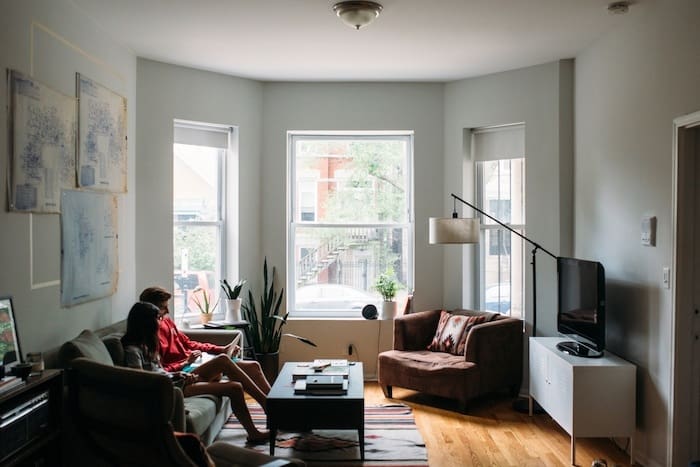What Owning a Rental Property Can Teach You About Selling Homes
- Published on
- 4-6 minute read
-
 Jonathan Deesing Contributing AuthorClose
Jonathan Deesing Contributing AuthorClose Jonathan Deesing Contributing Author
Jonathan Deesing Contributing AuthorJonathan holds an MBA from the University of Utah and is a writer and content specialist. He has written for Homes.com, ASE.org, ForRent.com, Inman, Zillow's Porchlight, RISMedia, Auction.com, and more. He currently resides in Salt Lake City, Utah.
Even when you do everything right – clean up the yard, fix the lawn, replace the light fixtures – you can still have trouble selling your home for the price you want. And while sometimes it’s just because you received bad advice, other times it’s because you just weren’t looking for advice in the right place.
Sure, you can talk to a Realtor, a lawyer, and a few service professionals, but in some specific cases, the person with the best advice may just be a local landlord.

Find Smart DIY Projects to Increase Property Value
Whether it’s by fixing up the lawn, adding garden boxes, or painting interior rooms –do-it-yourself (DIY) home improvement projects are a cheap way to add equity to your home. But how often do you really see this value realized? Landlords can see a return on projects with each new tenant or even sooner.
If, for example, you break out and re-pour a cracked sidewalk and sell your home five years later, it’s difficult to make a direct correlation with the sale price. But if a property manager replaces the carpet or vinyl flooring with hardwood, they can justify a rental increase to pay for it. So while it may be difficult to see a payoff on certain projects, projects that increase rental prices like new paint and cabinets are likely to increase property value on the whole.
Think Like a Landlord: Consider every DIY project through the lens of a landlord trying to justify raising rents. For example, upgrading the bathroom in a rental can bring a wow factor that increases value for potential renters, but it rarely has a great ROI, which can deter home sellers. Landlords typically wait until a bathroom is just out of date before making any changes and it’s good to ask yourself if your bathroom has passed that point yet.
Not all improvements need to break the bank, however, and thinking like a landlord can save you money. “Cheap updates go a long way,” says Jamie Crouch, a real estate broker with home rental firm Home Again Properties. “It doesn’t have to cost a fortune to breathe new life into dated homes. Landlords typically don’t want to spend a lot fixing up properties but that doesn’t mean it can’t look like they did.”
Crouch suggests new paint, light fixtures, and finish for cabinets. Think of where you can economize and make sure to only spend money on things you think will appeal to potential buyers.

Selling Homes the Smarter Way:
Know When to Seek Professional Help
Even the handiest of landlords sometimes need the help of a qualified professional. Electrical wiring, structural updates, and real estate lawsuits are often outside the realm of an average property manager. Likewise, when selling a home it’s good to know what you can do yourself and what requires a little more expertise.
Think Like a Landlord: Know what you can handle and what you can’t as a home seller. And unless you’re well versed in real estate, the most crucial hire when selling a home is a top real estate agent. Realtors are invaluable in nearly every single step of the process of selling a home – they understand the process, the local markets, and what needs to be done in order to get you the best sale price possible.
Depending on your level of expertise, you may want to consult multiple specialists before listing your home. While most people can handle improvements like landscaping and painting on their own, if your project involves something outside your wheelhouse don’t hesitate to call in the pros.
Carefully weigh the advantages and disadvantages of consulting a specialist before deciding to break out on your own – you could very well make things worse if you don’t know what you’re doing.
Figure Out What People Value
In the process of renting to multiple tenants, landlords quickly figure out which aspects of a property renters value (parking, stainless steel appliances, in-unit laundry) and which aspects they don’t. Not surprisingly, these are often the very same things that buyers are looking for when shopping for a home.
Features that renters appreciate may seem trivial in a home sale, but they can certainly help entice homebuyers. Keep in mind that if you’re selling a home in a lower price range, many of your potential buyers may only have past experience with rentals.
Think Like a Landlord: Experienced landlords know that they are renting for someone else that may not share their taste or style. When selling a home, do so with the buyer in mind, not just yourself.
“When you are renovating the home, try to choose neutral items that either the renter or buyer will want,” advises Marcion Albert, former landlord and now owner of NewAwning.com. “While I may prefer a bright accent wall, it could be a turn-off to the person that owns the home next. I can get a similar feel with a large tapestry or piece of art that won’t hurt the home’s resale value.”
Thinking like a landlord can definitely help with staging as well – renters with even low turnover are staging their properties much more often than someone selling their home. Make sure to consider small things that may attract a tenant like a washer and dryer or as Albert recommends, a new toilet seat.

Never Forget that Real Estate is a Business
Eager or timid landlords can easily find themselves being taken advantage of by renters. Allowing for late rent payments, trusting tenants to take care of the property, or not requiring a signed lease agreement are all common mistakes that rookie landlords make. The most successful property managers are those who realize that renting a home is a business and needs to be treated as such.
The same applies to selling homes.
Think Like a Landlord: People who own rentals view their property as their investment – not their home. This is because being emotionally attached to a rental is bad for business. But if you’ve lived in a home for just about any amount of time, you know it’s easy to become attached.
Unfortunately, this can lead to issues when you try to list your home. For example, it may be difficult for some homeowners to let go of the idea they may not be getting as much for a sale as they expected when they originally purchased their home, especially if it’s depreciated in value. Overvaluation in either scenario is a bad idea, as it can leave a home on the market too long and result in sellers getting a lower sale price than they could have.
Detaching from your property emotionally helps home sellers as much as landlords because it helps you see a sale as a business transaction, not selling a place you call home. This is useful not just for negotiating an asking price, but also down the road as you finalize the sale.
Listen to Your Inner Landlord
According to the National Multifamily Housing Council, 35% of U.S. residents rent versus 65% who own their homes. What’s more, a survey from Freddie Mac found that around 40% of those renters are dissatisfied with the rental experience as a whole and are likely considering buying a home. Before you try to sell your home, try thinking about it as a rental and ask yourself – what would a renter be looking for in my home? Because there’s a good chance you aren’t selling to a fellow homeowner.
If you’re struggling to sell a home or can’t get the price you want, try to consult a local landlord (a good real estate agent should know a few). They know the market, what people are looking for, and probably what you’re doing wrong. And if there’s one thing that property managers understand, it’s how to get people into a home.
